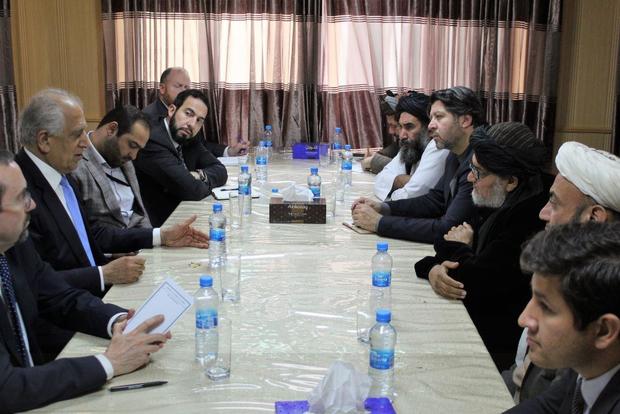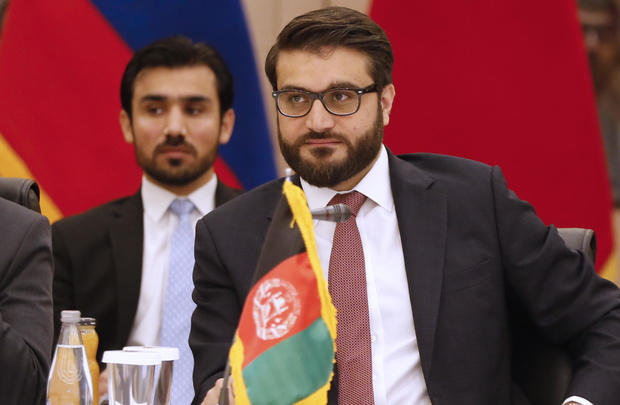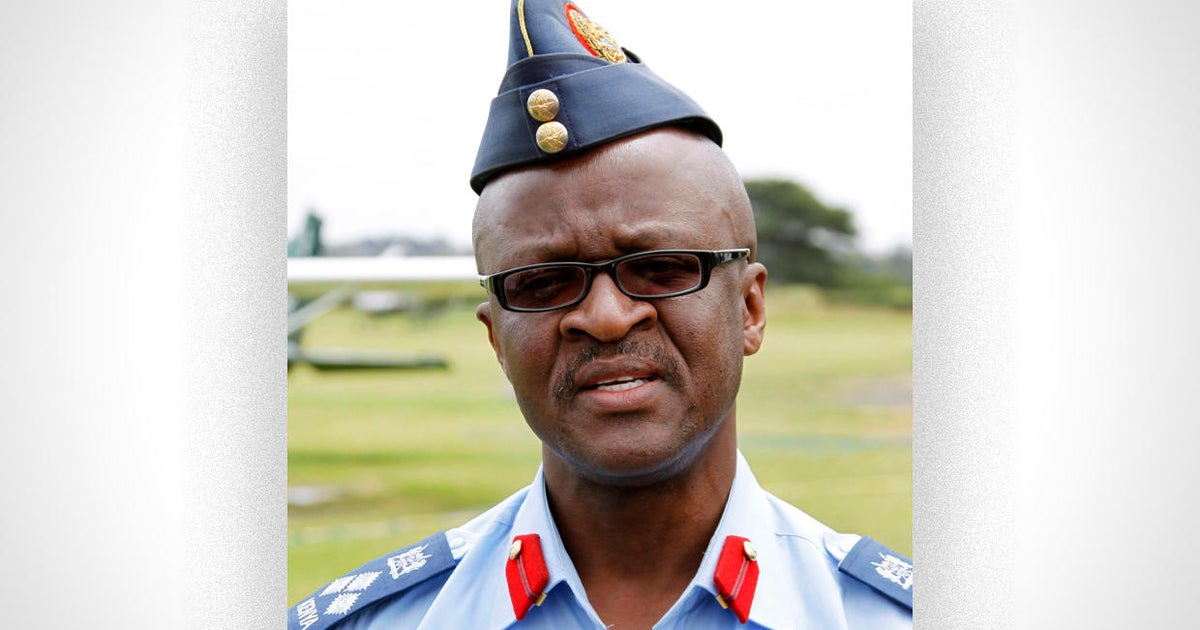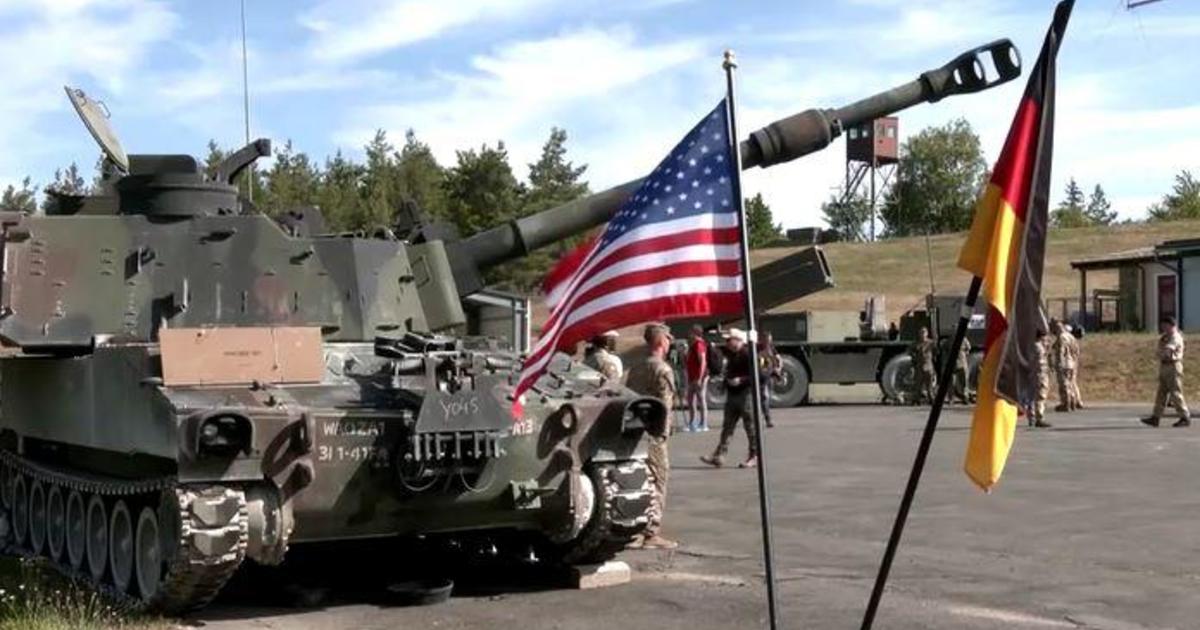Afghan official accuses top U.S. envoy of undermining Ghani government with colonial intentions
Washington -- In an extraordinary accusation made here in the U.S. capital, Afghanistan's top national security official asserted on Thursday that the Trump administration is conspiring to unseat elected Afghan President Ashraf Ghani and replace him with a colonial style government led by American diplomat Zalmay Khalilzad.
Hamdullah Mohib, National Security Adviser to Ghani, said he flew to Washington specifically to bring the concerns about Khalilzad to the White House's attention. He was told that his counterpart John Bolton was too "busy" to meet with him to discuss the concerns, however. He was still hoping that Bolton might drop in on his meetings scheduled for Friday at the White House.
Ambassador Khalilzad, the Trump administration's special envoy to Afghanistan, is currently negotiating a peace deal with the Taliban to end the 17-year conflict. Those discussions have thus far excluded the Afghan government.
"Zal," as he is known, indicated this week that his team of negotiators had reached a draft agreement with the Taliban on a plan for the withdrawal of the roughly 12,000 U.S. troops still in Afghanistan.
In a tweet Wednesday, Khalilzad said, "Peace requires agreement on four issues: counter-terrorism assurances, troop withdrawal, intra-Afghan dialogue, and a comprehensive ceasefire. In January talks, we "agreed in principle" on these four elements. We're now "agreed in draft" on the first two." He went on to say that once the agreement is finalized, the Taliban and "other Afghans including the government" will begin talks.
Mohib accused Khalilzad of deliberately withholding information about the talks from the Afghan government.
"We think either Zal -- Ambassador Khalilzad -- doesn't know how to negotiate or in fact there may be other reasons behind what he is doing. What he is doing is not getting a deal that will result in peace in Afghanistan," Mohib told CBS News. "The Taliban are in no mood to negotiate with the Afghan government and there is no reason for them to do so. They're gaining. Their sole aim and expectation and reasons in wanting to talk directly with the United States is to give themselves legitimacy."
"He is not negotiating a withdrawal," Mohib asserted. "He has said that clearly. He is negotiating to stay, but he thinks the Taliban will give them (U.S.) bases… How am I supposed to tell my security forces that they are not being sold out? What am I supposed to tell them?"
Mohib said his government had offered the Trump administration various options to reduce the cost of keeping U.S. forces in Afghanistan and continuing the security relationship. He even suggested the U.S. envoy has personal ambitions to lead his native Afghanistan himself.
Khalilzad is an Afghan-born U.S. diplomat who served during the administration of President George W. Bush and was brought back into the fold by Mr. Trump, to help end U.S. involvement in the conflict he helped start.
"Knowing Ambassador Khalilzad's own history, personal history, he has ambitions in Afghanistan. He has wanted to run for president twice, in 2009 and 2014," Mohib said, suggesting the U.S. envoy was deliberately undercutting the Ghani government to create a crisis, and then install a colonial-style government that he would oversee.
"The perception in Afghanistan," including in the government, Mohib said, was that "perhaps all of this talk is to create a caretaker government, of which he will then become the viceroy. We're only saying this because this is the perception."
But "this is not the Afghanistan that he was born in," Mohib said, suggesting Khalilzad may be overcome with "nostalgia" for not having done a better job during the Bush years. He said there had been frequent meetings between Khalilzad and former Afghan President Hamid Karzai, who remains an influential force in the country's politics.
A State Department official denied Mohib's accusation Thursday. "Mr. Mohib's comments are inaccurate and unhelpful, and we will be responding to them privately today," the official said. "His comments do not in any way reflect the high level of U.S.-Afghan coordination on all matters involving peace in Afghanistan."
Later Thursday, State Department deputy spokesperson Robert Palladino said Mohib had been summoned by the State Department to reject his comments.
"Under Secretary for Political Affairs David Hale summoned Afghan National Security Advisor Hamdullah Mohib today to reject the public comments attributed to National Security Advisor Mohib criticizing the U.S. approach to reconciliation," Palladino said. "Under Secretary Hale underscored the longstanding U.S. assistance and support to Afghanistan, and expressed our commitment to the Afghan government's stability and full participation in the peace process. He also reminded National Security Advisor Mohib that Special Representative Khalilzad represents the Secretary, and that attacks on Ambassador Khalilzad are attacks on the Department and only serve to hinder the bilateral relationship and the peace process."
A National Security Council official called Mohib's comments "inaccurate" and said the U.S. "deeply values its long-standing relationship with Afghanistan." The official pointed out that the U.S. is "fighting shoulder-to-shoulder with Afghan security forces to stabilize the country and defeat terrorist threats" and working together to bring an end to the war.
The official defended Khalilzad's efforts to bring together stakeholders so they can "reach a political settlement that will bring an end to the conflict." The U.S. has seen signs of "good progress" in these recent discussions, the official said.
Ghani faces an election battle in July. Mohib said there had been no request by the U.S. to delay the voting.
Last month in an interview on CBS News' "Face the Nation," host Margaret Brennan asked President Trump whether he could trust the Taliban. He responded by questioning why the U.S. got involved in Afghanistan in the first place, and then gave the following answer: "We're fighting harder than ever before. And I think that they will-- I think they're tired. And I think everybody's tired. We got to get out of these endless wars and bring our folks back home. Now, that doesn't mean we're not going to be watching with intelligence. We're going to be watching, and watching closely."
When pressed as to whether there is a scenario under which he would consider keeping a U.S. troop presence in Afghanistan, the president replied in the affirmative. "Yes. And I'll leave intelligence there. Real intelligence, by the way. I'll leave intelligence there. And if I see nests forming, I'll do something about it. But for us to be spending $51 billion, like last year, or if you average the cost, it's -- I mean, you're talking about numbers that nobody has ever heard of before,"
The reference to "nests" appeared to be about terror groups forming inside Afghanistan. That country is where the 9.11 attacks were launched from as al Qaeda was given safe haven by the government which at the time was under Taliban control.






